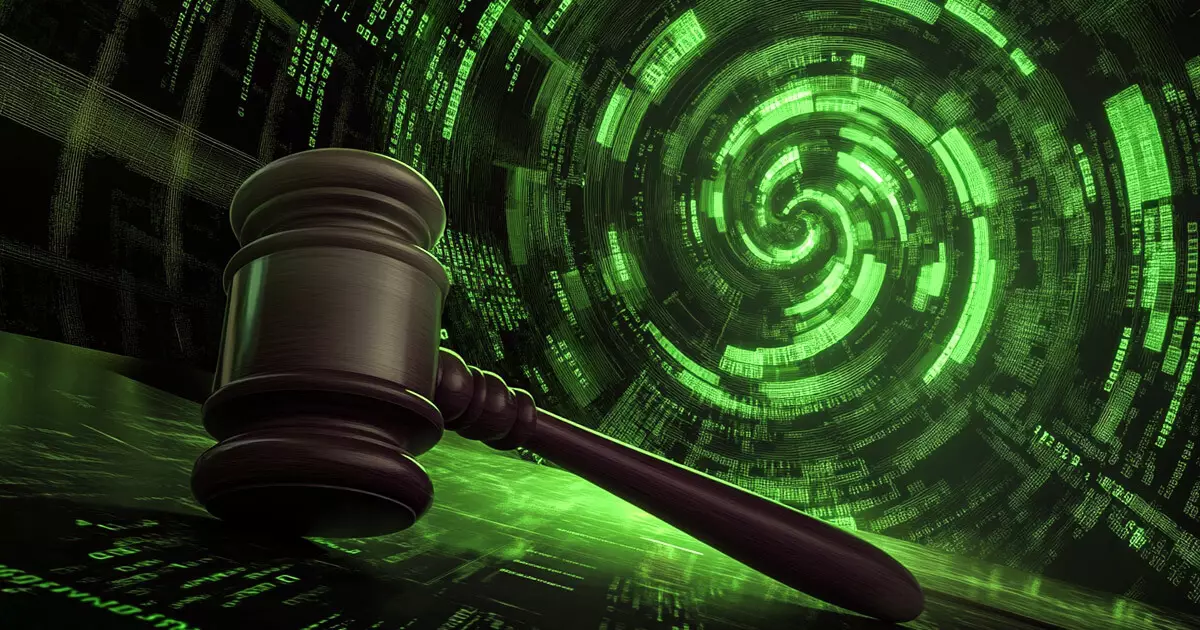The cryptocurrency landscape has always been riddled with ambiguity, particularly concerning regulatory frameworks and the legal status of various protocols. The recent ruling by Judge Katherine Polk Failla in the Southern District of New York has added a new layer of complexity. On September 26, 2023, Judge Failla declared that software code utilized in cryptocurrency protocols such as Tornado Cash does not receive protection under the First Amendment, a decision that has the potential to reshape the relationship between cryptocurrency developers and the legal environment in which they operate.
The contention surrounding the intersection of software code and freedom of expression derives from the argument that code itself is a medium of communication. Proponents of this viewpoint hold that writing and deploying code should be viewed similarly to creating art or literature, which are indisputably protected forms of free speech. However, Judge Failla’s ruling suggests a departure from this principle, positing that the functionality of code—especially when it serves monetary transactions—transcends mere expression. This ruling implies that while the code can be rich in expressive capacity, its application in transferring money disqualifies it from constitutional protections.
This nuance raises significant questions about the future treatment of cryptocurrencies and blockchain technology. If code, when used in a financial context, is stripped of its protective status, developers might face increased scrutiny and liability, fundamentally altering their role and responsibilities.
A critical aspect of Judge Failla’s ruling is its assertion that protocols like Tornado Cash may be classified as money transmitters, even if developers do not have direct control over the funds involved. This perspective aligns with the arguments made by U.S. prosecutors, who claim that Tornado Cash and comparable platforms, like Samourai Wallet, facilitate unlicensed money transmission and violate U.S. sanctions laws. The court’s decree is instrumental in establishing that control over the funds isn’t a prerequisite for being labeled a money transmitter under the Bank Secrecy Act (BSA).
This legal stance creates a slippery slope for developers in the crypto industry, as it raises the bar for compliance and places heightened expectations on project creators, regardless of their operational capacities or intentions. Without a clear delineation regarding what constitutes control over funds, developers might find themselves navigating a minefield of legal risks.
Roman Storm, a developer associated with Tornado Cash, is navigating a precarious situation. Charged with serious crimes such as money laundering and operating an unlicensed money-transmitting business, Storm’s upcoming trial scheduled for December 2 could have monumental implications for the industry. His defense argues that his innovative role in developing Tornado Cash should be shielded by free speech laws. The court’s dismissal of this argument alludes to a worrisome trend: the potential criminalization of code development in some contexts.
Critics within the crypto community have voiced their dissatisfactions vehemently. Amanda Tuminelli, a legal officer at the DeFi Education Fund, articulated her concerns regarding the ruling’s potential to expand developer liability in unforeseen ways. Similarly, Jake Chervinsky, chief legal officer at Variant, dismissed the ruling as an alarming precedent that could inhibit developers’ freedom and innovation across the board.
This ruling contributes to ongoing conversations about how existing laws need to evolve to accommodate the rapid pace of technological advancement within the financial sector. As the regulatory landscape becomes increasingly intricate, the absence of clear guidelines could stifle innovation and deter participation from new developers who fear legal repercussions.
The decision emphasizes the current regulatory bodies’ struggle to adapt and apply traditional financial laws to the distinctly different realm of cryptocurrencies. As the situation progresses, legal appeals and further discussions will likely carve pathways for future rulings and potentially more refined legal frameworks suited to the nuances of blockchain technology.
Judge Failla’s ruling has illuminated crucial issues surrounding the nature of code in financial contexts and the responsibilities that come with developing decentralized technologies. The long-term consequences of this legal decision could shape the future of innovation in the crypto space and alter how developers engage with their creations. As appeals and subsequent legal clarifications unfold, the crypto community watches closely, cognizant of the profound implications for its creative freedom and operational integrity.

